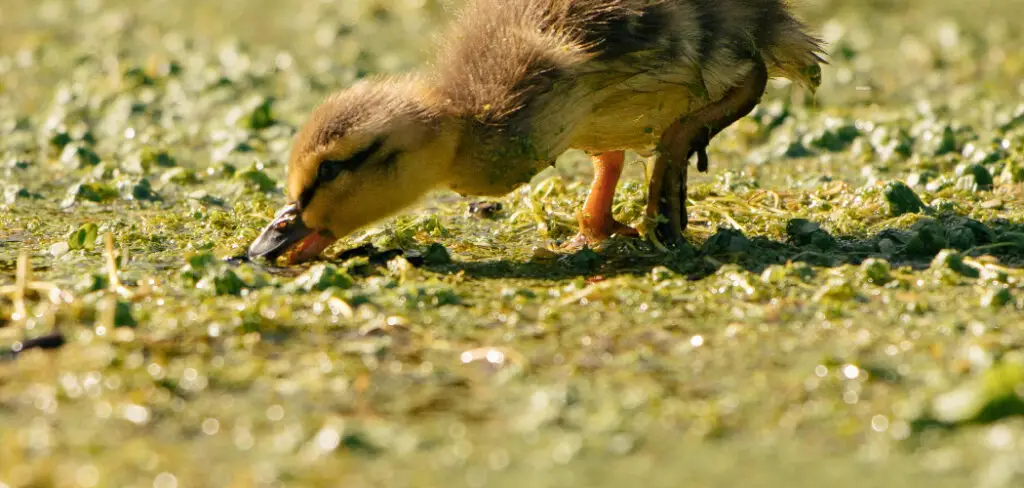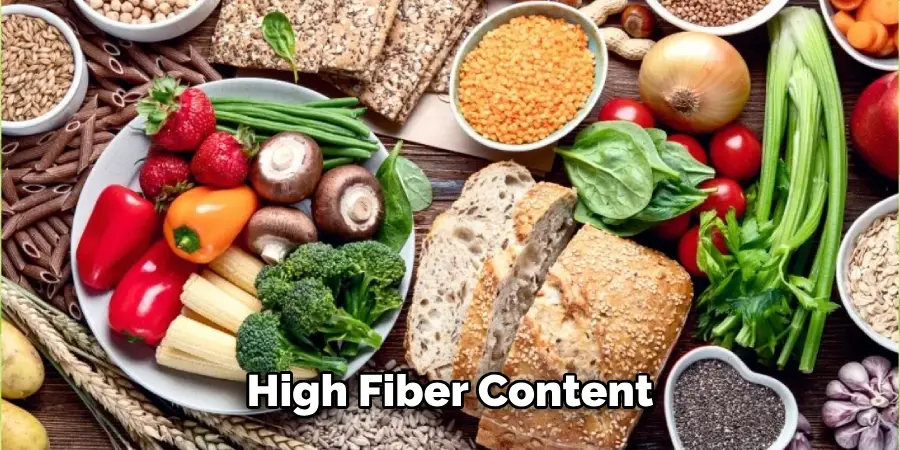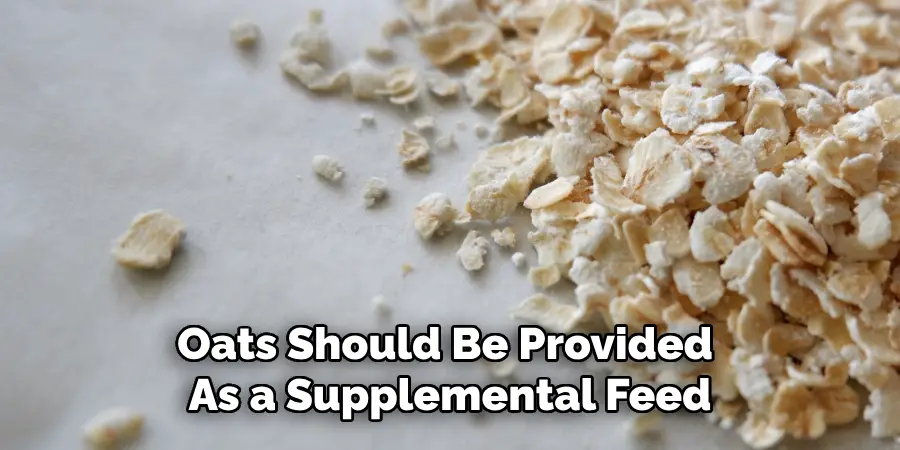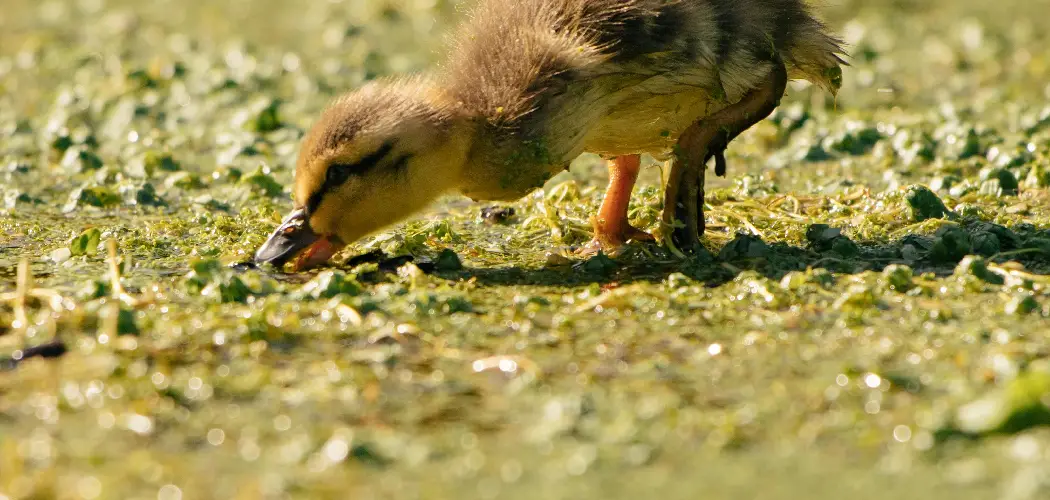Feeding ducks oats is a simple and nutritious way to supplement their diet, ensuring they receive essential nutrients for optimal health. This guide will walk you through how to feed ducks oats, the types of oats best suited for them, and the proper methods for preparing and offering oats to your feathered friends.

Whether you’re a backyard poultry enthusiast or enjoy feeding ducks at the local pond, these tips will help you provide a healthy and enjoyable treat for your ducks.
Importance of a Balanced Diet for Ducks
Providing ducks with a balanced diet is crucial for their overall health and well-being. A well-rounded diet ensures that ducks receive the necessary vitamins, minerals, and proteins needed for growth, feather development, and reproductive health.
While oats offer a good source of energy and essential nutrients, they should be part of a diverse diet that includes grains, vegetables, and specially formulated duck feed. Ducks that consume a variety of foods are less likely to suffer from nutritional deficiencies, leading to stronger immune systems and increased resilience against diseases. Moreover, a balanced diet supports the ducks’ natural behaviors and enhances their quality of life by keeping them active and content.
Benefits of Feeding Oats to Ducks
Feeding oats to ducks offers numerous benefits that contribute to their overall health and vitality. Oats are rich in essential nutrients such as carbohydrates, fiber, and protein, which provide ducks with sustained energy and support muscle development.
The high fiber content aids in digestion, helping to maintain a healthy gut and prevent digestive issues. Additionally, oats are a good source of antioxidants, which play a role in supporting the immune system and promoting disease resistance. Oats are easy to digest and can be a gentle food option for ducks of all ages, including ducklings and older ducks.

Types of Oats Suitable for Ducks
When choosing oats to feed your ducks, it’s important to select the types that are not only nutritious but also safe for them to consume. Several kinds of oats are suitable for ducks:
- Whole Oats: These are unprocessed oats that contain the bran, germ, and endosperm. Whole oats are rich in nutrients and provide ducks with a robust source of fiber and energy.
- Rolled Oats: Also known as old-fashioned oats, these are steamed and then rolled flat. Rolled oats are easier for ducks to eat and digest, making them a convenient option.
- Steel-Cut Oats: These oats are cut into small pieces using steel blades, preserving much of their nutritional value while creating a texture that’s manageable for ducks. However, they may require soaking to soften before feeding.
- Quick Oats: These are rolled oats that have been cut into smaller pieces for faster cooking. Quick oats can be a suitable option if you need to prepare a quick meal for your ducks, but they should be unsweetened and unflavored.
10 Methods How to Feed Ducks Oats
1. Choose the Right Type of Oats
When feeding oats to ducks, it’s essential to select the appropriate type. Whole oats, rolled oats, and crushed oats are common options. Whole oats are the least processed and retain their hull, providing ducks with more fiber but requiring longer digestion.
Rolled oats are steamed and flattened, making them easier for ducks to digest while still retaining nutritional value. Crushed oats are broken into smaller pieces, offering a compromise between whole and rolled oats. Choose the type of oats based on the age and size of your ducks, aiming for digestibility and nutritional balance.
2. Gradually Introduce Oats into the Diet
When introducing oats to ducks, start with small quantities and gradually increase the amount over time. Ducks have sensitive digestive systems, and sudden changes in diet can cause digestive upset. Begin by mixing a small portion of oats with their regular feed, such as pellets or crumbles.
Monitor the ducks for any signs of digestive issues, such as diarrhea or reduced appetite. Slowly increase the proportion of oats in their diet as they become accustomed to the new food. This gradual introduction helps ducks adjust to oats while minimizing the risk of digestive problems.
3. Provide Oats as a Supplemental Feed
Oats should be provided as a supplemental feed rather than a primary source of nutrition for ducks. While oats are nutritious and contain carbohydrates, protein, and essential minerals like manganese and phosphorus, they lack certain vitamins and amino acids that ducks need for optimal health.

Supplementing their diet with oats can add variety and enrichment, but ensure they still receive a balanced diet that includes commercial duck feed or a formulated pellet. Use oats to complement their regular feed rather than replacing it entirely.
4. Mix Oats with Other Foods
To enhance the nutritional value and palatability of oats for ducks, consider mixing them with other foods. Combine oats with chopped vegetables, fruits, or seeds to create a balanced and varied diet. Ducks enjoy a diverse range of foods, and mixing oats with fresh produce can stimulate their appetite and provide additional vitamins and antioxidants.
Avoid adding salt, sugar, or processed foods to the mixture, as these can be harmful to ducks. Experiment with different combinations to find a mix that your ducks enjoy and that provides essential nutrients.
5. Offer Oats in Different Forms
Ducks may prefer oats in various forms, so offering them in different textures can keep mealtime interesting. Whole oats can be scattered on the ground or water surface for ducks to peck at, providing enrichment and encouraging natural foraging behavior.
Rolled oats can be mixed into a wet mash with water or yogurt, creating a soft and easy-to-consume treat. Crushed oats can be sprinkled over their regular feed or mixed with seeds for added texture and flavor. Providing oats in different forms allows ducks to enjoy variety while receiving essential nutrients.
6. Monitor Duck’s Body Condition
Regularly monitor the body condition of ducks when feeding oats to ensure they maintain a healthy weight and overall condition. Oats are calorie-dense and can contribute to weight gain if overfed, especially for less active ducks or during periods of limited exercise.
Obesity can lead to health issues such as fatty liver disease and joint problems in ducks. Adjust the amount of oats based on the individual duck’s activity level, age, and overall health. Consult with a veterinarian if you notice significant changes in body condition or behavior.
7. Consider the Age of the Ducks
The age of ducks influences their dietary needs and how oats should be fed to them. Ducklings require a diet high in protein for growth and development, so oats should only be introduced gradually after they have transitioned to a balanced starter feed.
Young ducks, such as juveniles and adolescents, benefit from a varied diet that includes both commercial feed and supplemental foods like oats. Adult ducks have different nutritional requirements, focusing more on maintaining health and egg production. Adjust the amount and type of oats based on the age and life stage of your ducks to support their specific nutritional needs.

8. Avoid Feeding Moldy Oats
Always ensure that the oats fed to ducks are fresh and free from mold or contaminants. Moldy oats can contain toxins that are harmful to ducks and can lead to digestive problems or even poisoning.
Store oats in a cool, dry place in a sealed container to prevent moisture and mold growth. Check oats for any signs of mold, discoloration, or unusual odor before feeding them to ducks. Dispose of any spoiled oats promptly and replenish with fresh, high-quality oats to maintain the nutritional integrity of their diet.
9. Provide Access to Clean Water
Offer ducks access to clean, fresh water at all times, especially when feeding oats. Oats can be dry and absorb moisture in the digestive tract, so ducks need an adequate water supply to aid digestion and prevent dehydration.
Place water containers or shallow dishes in the coop and run where ducks can easily access them. Ensure water is changed regularly to prevent contamination and encourage ducks to stay hydrated. Hydration is essential for overall health and digestion, particularly when incorporating new foods like oats into their diet.
10. Observe Duck’s Behavior and Health
Observe the behavior and health of ducks regularly when feeding oats to monitor their response and ensure they thrive. Healthy ducks are active, alert, and exhibit normal eating and drinking habits.
Watch for any signs of digestive upset, such as changes in feces consistency, decreased appetite, or lethargy, which may indicate intolerance to oats or other dietary issues. Adjust the amount and frequency of oats based on their response and consult with a veterinarian if you have concerns about their diet or health. Regular observation allows you to tailor their diet effectively and promote their overall well-being.

Conclusion
Feeding oats to ducks can be a rewarding way to supplement their diet with nutritious and enjoyable treats. By selecting the right type of oats, gradually introducing them into their diet, and monitoring their health and behavior, you can provide ducks with a balanced and enriching feeding experience.
Incorporate oats as part of a varied diet that meets their nutritional needs while promoting their natural foraging instincts and overall health. Thanks for reading, and we hope this has given you some inspiration on how to feed ducks oats!
About
Outdoor Fixes is a distinguished figure in the world of Diy design, with a decade of expertise creating innovative and sustainable Diy solutions.
His professional focus lies in merging traditional craftsmanship with modern manufacturing techniques,
fostering designs that are both practical and environmentally conscious. As the author of diy,
outdoorfixes delves into the art and science of outdoorfixes-making, inspiring artisans and industry professionals alike.
Education RMIT University
(Melbourne, Australia) Associate Degree in Design (Outdoor Fixes) Focus on sustainable design, industry-driven projects,
and practical craftsmanship. Gained hands-on experience with traditional and digital manufacturing tools, such as CAD and CNC software.
Nottingham Trent University
(United Kingdom) Bachelor’s in outdoorfixes.com and Product Design (Honors) Specialized in product design with a focus on blending creativity with production
techniques. Participated in industry projects, working with companies like John Lewis and Vitsoe to gain real-world insights.
Publications and Impact
In diy, Outdoor Fixes his insights on indoor design processes, materials, and strategies for efficient production.
His writing bridges the gap between artisan knowledge and modern industry needs, making it a must-read for both budding designers and seasoned professionals.

